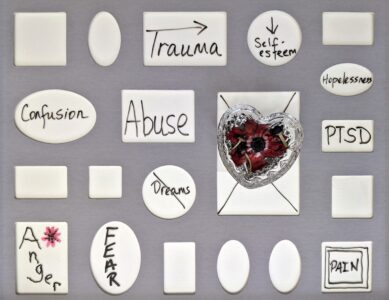Drug addiction is a serious problem that can lead to relapse even after long periods of sobriety. Relapse is often a gradual process, and it’s important to be aware of the stages of relapse so you can take steps to prevent yourself from sliding back into drug abuse. In this blog post, we will discuss the six stages of relapse and what you can do to stay on track during recovery.
Emotional Disturbance
When you are in the early stages of relapse, your emotions will be all over the place. You may feel angry, anxious, or sad for no reason. These feelings can be very intense and make it difficult to think straight. It is important to pay attention to your emotions during this time and do your best to manage them. There are different ways to find out what to look for when relapse prevention is the topic. If you are feeling overwhelmed, seek help from a therapist or support group.
Another way to prevent relapse is to stay connected to your sober support. This may include attending 12-step meetings, seeing a therapist, or talking to friends who are also in recovery. Finally, it’s important to keep up with your recovery routine even when you’re feeling good. This may include attending 12-step meetings, seeing a therapist, or talking to friends who are also in recovery. If you ignore the warning signs of emotional disturbance, it can lead to a full-blown relapse. The key is to address any problems head-on before they get out of hand.
Mental Preoccupation
This stage is marked by an obsessive focus on drug use. The person may constantly think about using drugs and how they will get their next fix. They may also begin to isolate themselves from friends and family members to spend more time using drugs. This can be a dangerous phase, as it increases the risk of relapse. It is important to seek help if you notice that you or a loved one is in this stage. There are many treatment options available that can help you overcome addiction.
Lifestyle Changes
One of the most important things to do when recovering from drug addiction is to change your lifestyle. This means making healthy decisions and avoiding anything that could potentially trigger a relapse. Some key lifestyle changes to make include eating healthy foods, avoiding alcohol and other drugs, getting enough sleep, and exercising regularly.
If you can make these lifestyle changes and stick with them, you’ll be well on your way to a successful recovery. relapse prevention skills will help keep you on track when times get tough. Remember, it’s not always easy but it’s worth it! relapse prevention skills will help keep you on track when times get tough. Remember, it’s not always easy but it’s worth it.
Functional Impairment
Drug addiction can cause a person to experience functional impairment in their personal, social, and professional life. Drug addiction can lead to job loss, financial instability, relationship problems, and more. When recovering from drug addiction, it is important to address the functional impairment that has been caused by the addiction. This may require seeking out treatment for the functional impairment as well as treatment for the drug addiction. Addressing all aspects of the addiction is crucial for a successful recovery.
Functional impairment can refer to a wide range of issues that have been affected by drug addiction, such as job performance, financial stability, ability to maintain healthy relationships, and more. Addressing these issues is an important part of the recovery process.
Tolerance
As addiction progresses, the addict will require more of the drug to achieve the desired effect. This can lead to dangerous behaviors as the addict seeks out more and more of the drug, often putting themselves in risky situations. Tolerance also increases the risk of overdose, as the addict may not realize they are taking too much of the drug. It is important to be aware of these dangers and take steps to avoid them.
Relapse
The last stage of addiction is relapse. This is when the individual returns to drug abuse after a period of abstinence. Relapse can be either complete, in which the individual resumes using drugs compulsively, or it can be partial, in which the individual uses drugs but does not lose control over their use. Either way, relapse is a danger and should be avoided at all costs.
Several factors can contribute to relapse: stress, environmental cues (seeing someone using drugs, for example), poor coping skills, and emotional vulnerability. If you notice that someone is slipping back into old behaviors or seems to be headed for a relapse, it’s important to step in and offer support before it’s too late.
The stages of relapse can be incredibly dangerous for those in recovery from drug addiction. It is important to be aware of these stages and take steps to prevent relapse from occurring. If relapse does occur, it is important to seek help immediately. With the right support, it is possible to overcome relapse and continue on the path to recovery.
